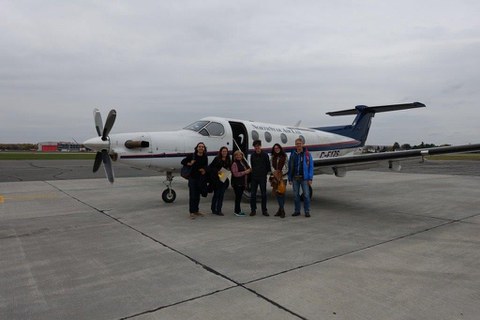Dec 07, 2016
TUD Education Expert Sets Up Research Contact with Canadian “First Nations”

Research Group “First Nations”.
TUD education scientist Dr. Michael Hecht’s research focuses mainly on the relationship of school and informal extra-curricular education in Germany. But two years ago, after attending an international symposium in the Canadian city of Toronto, he decided to look into the cultural education of Native Americans as well. And so in October, the scientist from Dresden joined forces with a research team at Ryerson University in Toronto and flew to the remote north of Ontario to the Oji-Crees, a “First-Nation” tribe. This research visit was funded by the programme line cooperations@TUD of the Institutional Strategy funding programme for implementing the Internationalisation Strategy “TU Dresden – Connected to the World”.
“The traditions, culture and knowledge of the Canadian Indians have been systematically destroyed over the past 150 years,” reports Michael Hecht. “The Indians today live a life torn between their own culture and that of the ‘West’. Their children have to attend distant boarding schools where they are assimilated. For this reason, it is important for them to be given access outside school to their traditions and consequently to their identity.” During the coming summer, the entire Indian community will therefore move to a three-week “Elder Youth Retreat” for a spiritual period of reflection in nature.
“In doing so, the tribe’s elders seek to pass on their experiences to the next generation.” The tribe is very interested in research collaborations because so much traditional knowledge has been lost. “By means of participatory observation, we want to gather together the few remaining fragments of knowledge about tribal traditions,” explains Michael Hecht, who is a research assistant at the TUD Chair of School Education.
“On the other hand, we are hoping for fresh impetus for learning experiences outside the classroom.” There is a growing trend in Germany for school children to be given the chance to spend a few weeks outside school to gain special experiences which can help them develop in a different way, e.g. hiking to Poland on the trail of their forefathers or cycling to the sea. “In such a context, we can certainly learn a lot in an exchange of ideas with the First Nations,” the Dresden education scientist hopes.
